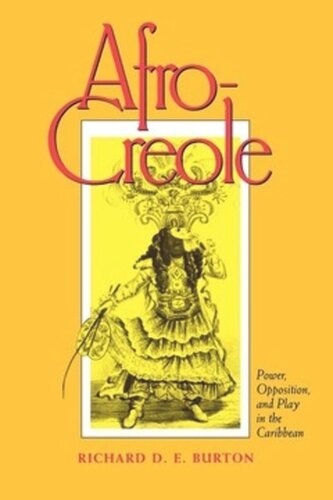

Most ebook files are in PDF format, so you can easily read them using various software such as Foxit Reader or directly on the Google Chrome browser.
Some ebook files are released by publishers in other formats such as .awz, .mobi, .epub, .fb2, etc. You may need to install specific software to read these formats on mobile/PC, such as Calibre.
Please read the tutorial at this link: https://ebookbell.com/faq
We offer FREE conversion to the popular formats you request; however, this may take some time. Therefore, right after payment, please email us, and we will try to provide the service as quickly as possible.
For some exceptional file formats or broken links (if any), please refrain from opening any disputes. Instead, email us first, and we will try to assist within a maximum of 6 hours.
EbookBell Team

4.3
28 reviewsThis wide-ranging book explores the origins, development, and character of Afro-Caribbean cultures from the slave period to the present day. Richard D. E. Burton focuses on ways in which African traditions—including those in religion, music, food, dress, and family structure—were transformed by interaction with European and indigenous forces to create the particular cultures of Jamaica, Trinidad, and Haiti. He demonstrates how the resulting Afro-Creole cultures have both challenged and reinforced the social, political, and economic status quo in these countries.Jamaican slaves opposed slavery in many ways and one of the most important, Burton suggests, was the development of Afro-Christianity. He pays particular attention to the African-derived Christmas celebration of Jonkonnu as an expression of opposition and then documents religion in the post-slavery period, with an emphasis on Rastafarianism in Jamaica and Vodou in Haiti. The element of play has always figured importantly in Afro-Caribbean life. Burton examines the evolution of carnival and calypso in Trinidad and describes the significance of cricket in defining Caribbean national identity. Based on ten years of research, Afro-Creole draws on historical, anthropological, sociological, and literary sources. Burton characterizes the emergence of Caribbean identity with three different national flavors and demonstrates how culture both reflects and impacts people's changing sense of their own political power.